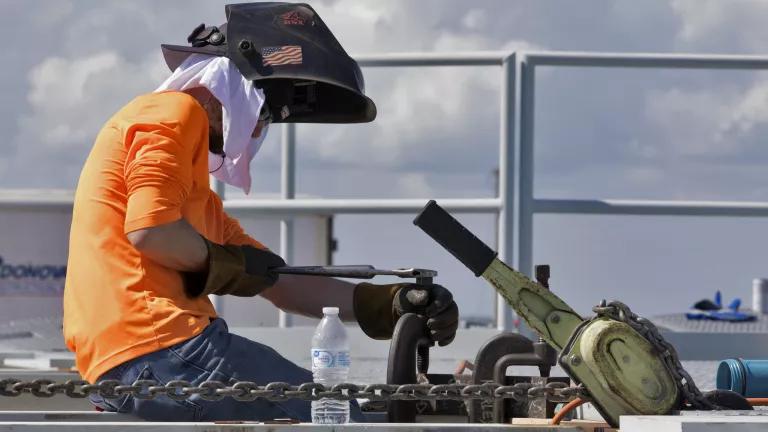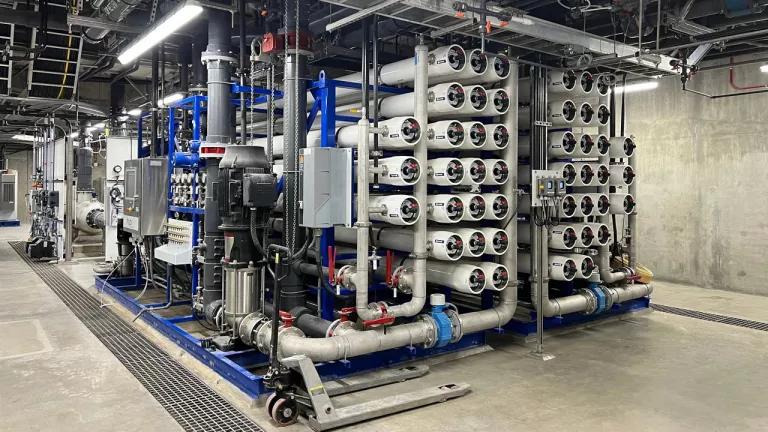As LA’s public transit agency—the Metropolitan Transportation Authority (Metro)—is ramping up construction to build a more effective public transit system, it is also considering adopting a policy to make sure that all this new construction will not bring dirty diesel pollution into our neighborhoods.
My colleagues Damon Nagami and Adriano Martinez have blogged about Metro’s plan to construct 30 years worth of public transit projects over the next 10 years. While the 30/10 initiative will bring us a better transportation system much faster, the construction of this better system will require a lot of construction, and a lot of construction equipment. And construction equipment is some of the most polluting equipment in our region.
Basically, the policy would require contractors working for Metro to use construction equipment, vehicles, and generators that meet modern clean air standards. This equipment will emit significantly less air pollution than the older, dirtier models, in many cases one hundred times less soot. Contractors can meet these requirements by either retrofitting or upgrading existing equipment, buying new equipment, or renting equipment. Our region’s air quality agency (the South Coast Air Quality Management District) can help with these costs by providing millions of dollars of funding towards construction equipment clean up. Additionally, many contractors rent much of their equipment, so under this policy they will instead rent equipment that meets the policy’s standards. The policy contains exceptions allowing flexibility if a particular technology or equipment is not available or would be used for a project for only a few days.
Diesel construction equipment and heavy-duty trucks emit fine particulate matter (PM2.5), ozone-forming nitrogen oxides (NOx), and toxic air pollutants that contribute to chronic respiratory diseases like asthma and make people more susceptible to developing certain cancers. Diesel PM contributes to approximately 2,000 premature deaths in California every year and is especially harmful for children and the elderly. Because of these serious health impacts, it is critical that Metro adopt a strong policy to make sure that any increase in construction activity does not contribute to this already heavy health burden. One of Metro’s key goals is to create a more sustainable transportation system in LA; the equipment and vehicles used to build these projects must further this essential objective.
Led by Mayor Villaraigosa, Metro Boardmember Richard Katz, and Metro staff, Metro has worked for months with a broad suite of stakeholders including the South Coast Air Quality Management District, representatives from the construction and emission control industries, and environmental, environmental justice, and public health organizations to put together a policy that will significantly reduce the air pollution from Metro’s construction projects. This extensive process has led to one of the strongest green construction policies in the nation, clearly exhibiting the green leadership of the City and County of Los Angeles and Metro.
Without this policy, communities around LA County will be subjected to years of toxic diesel pollution whenever Metro builds a new project in their neighborhood. The green construction policy will buffer our communities against this pollution and ensure that developing the long-overdue public transit system in LA will truly clean up our city and give people an option to ditch their cars, rather than bring dirty pollution into our neighborhoods.
The Metro Board of Directors is going to vote on adopting the policy this week. NRDC will be there to urge the Board to move forward with this landmark initiative.



